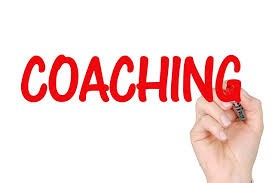- Call: +254 712 013 188
- Email: info@leap.co.ke

In a world obsessed with optics, the image of leadership has often been polished to perfection, confident smiles, decisive gestures, powerful speeches. Boardrooms, stages, LinkedIn profiles, podcasts, and TED Talks all echo the same narrative: the composed, visionary, unshakable leader. But peel back the curated façade, and a more provocative question emerges:
Today’s leaders are expected to embody a paradox: to be bold yet humble, innovative yet grounded, emotionally intelligent yet steely under pressure. The tension between these demands often produces what is called performative leadership: a style that mimics authenticity without embodying it.
This isn’t always intentional. Many leaders wear the mask not out of deceit, but out of survival. The pressure to maintain a pristine image is relentless, fed by stakeholders, investors, constituents, followers, and a social media culture that punishes missteps with disproportionate scrutiny.
And so, a leader learns to show what’s acceptable while hiding what’s inconvenient: uncertainty, self-doubt, fatigue, or moral complexity. The mask becomes a tool, but, over time, it can become a trap.
Behind that mask, disconnection grows. From the team. From purpose. From self.
We’re inundated with calls for “authentic leadership,” yet in many corporate or political spaces, vulnerability is still seen as a liability. We say we value honesty, but often reward charisma. We applaud openness, until it makes us uncomfortable.
So let’s ask the harder question: When do we truly make space for authentic leadership? And when do we just pay it lip service?
True authenticity goes beyond transparency. It’s not just about telling the truth It’s about aligning that truth with your actions, even when it’s inconvenient. This is congruence, and it’s far more powerful than image management.
Authenticity becomes the backbone of sustainable leadership when it’s grounded in integrity, not just optics. When leaders choose real over rehearsed, values over vanity.

Sometimes, it’s ego, a deeply human craving for validation, power, or significance. Other times, it’s fear, of being irrelevant, misunderstood, or exposed. These emotions don’t make a leader weak; they make them human.
But beneath both ego and fear lies something even more essential: vision. A true desire to lead change, to serve others, to create a better future. This vision often gets buried under the weight of performance, but it doesn’t disappear.
Reloaded leadership is about excavating that vision. About recognizing ego and fear without being ruled by them. It’s a shift from persona to purpose.

To truly unmask, leaders need more than intention. they need space.
Coaching can be that space.
It’s not therapy. It’s not training. It’s not advice.
It’s a trusted, judgment-free zone where the mask can safely come off.
In coaching, leaders are invited to explore the parts of themselves that don’t show up on stage or in strategy decks, the doubts, the tensions, the hopes they barely dare to say out loud. Coaching becomes the quiet space between the noise, where truth has room to surface.
It’s where ego can soften, fear can be seen, and vision can be reclaimed.
In a world that demands performance, coaching offers presence.
In a culture that rewards image, coaching values alignment.
It is where reloaded leadership begins, not with a script, but with self-awareness.
Here’s what the reloaded leader chooses:
This isn’t weakness, it’s wisdom.

Let’s be clear: leadership is not confined to corner offices or executive titles. Leadership lives wherever someone chooses to take responsibility for influence, with intention and compassion.
And in today’s climate, one of the most radical acts of leadership isn’t putting on a stronger mask, it’s having the courage to take it off.
Because when a leader is willing to show up as they are, imperfect, learning, and evolving, they create a ripple effect. They invite others to do the same. And that’s when real transformation begins. Not just in the organization, but in the culture, the community, the system.
Leadership Reloaded isn’t about rewriting the rules of power, it’s about rewriting ourselves. Choosing depth over display. Purpose over performance. Humanity over perfection.
Here’s the Rub:
About the Author
Dr Tazmin Alibhai, PsyD, PCC is a leadership coach, facilitator, and organizational consultant with over 30 years of experience helping leaders create psychologically safe, high-performance cultures. She works with senior teams to turn insight into impact, and strategy into sustainable action.